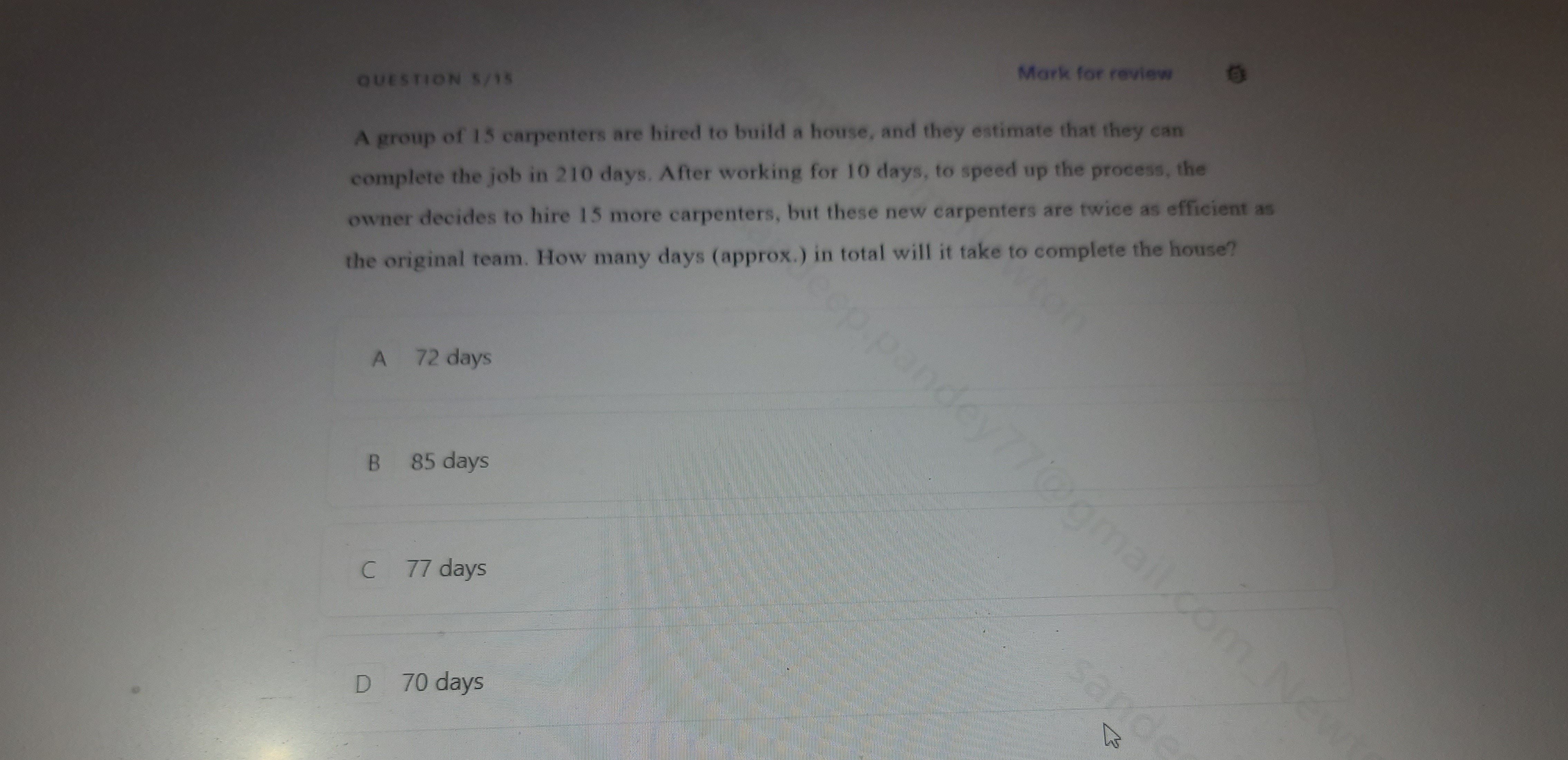Question
Question: A group of 15 carpenters are hired to build a house, and they estimate that they can complete the jo...
A group of 15 carpenters are hired to build a house, and they estimate that they can complete the job in 210 days. After working for 10 days, to speed up the process, the owner decides to hire 15 more carpenters, but these new carpenters are twice as efficient as the original team. How many days (approx.) in total will it take to complete the house?

72 days
85 days
77 days
70 days
77 days
Solution
Let the efficiency of one original carpenter be Eo units of work per day.
The efficiency of one new carpenter is En=2Eo units of work per day.
The total work required to build the house is estimated to be done by 15 original carpenters in 210 days.
Total work = Number of carpenters × Time × Efficiency per carpenter
Total work = 15×210×Eo units.
Let's assume Eo=1 unit/day for simplicity.
Total work = 15×210=3150 units.
In the first 10 days, 15 original carpenters worked.
Work done in the first 10 days = 15×10×Eo=15×10=150 units.
Remaining work = Total work - Work done in the first 10 days
Remaining work = 3150−150=3000 units.
After 10 days, the team consists of 15 original carpenters and 15 new carpenters.
The daily work rate of the original 15 carpenters = 15×Eo=15×1=15 units/day.
The daily work rate of the new 15 carpenters = 15×En=15×(2Eo)=15×2=30 units/day.
The combined daily work rate of the new team = Work rate of original carpenters + Work rate of new carpenters
Combined daily work rate = 15+30=45 units/day.
Let d be the number of days taken to complete the remaining work.
Remaining work = Combined daily work rate × Time
3000=45×d
d=453000
To simplify the fraction 453000:
Divide both numerator and denominator by 5: 9600
Divide both numerator and denominator by 3: 3200
So, d=3200 days.
The total time taken to complete the house is the sum of the time spent in the first phase and the time spent in the second phase.
Total time = Time in first 10 days + Time for remaining work
Total time = 10+3200 days
Total time = 310×3+3200=330+3200=3230 days.
Now, we need to approximate the total time.
3230=76 with a remainder of 2.
So, 3230=7632 days.
As a decimal, 32≈0.666...
Total time ≈76.67 days.
We need to find the closest option to 76.67 days. A 72 days (Difference = 4.67) B 85 days (Difference = 8.33) C 77 days (Difference = 0.33) D 70 days (Difference = 6.67)
The closest option is 77 days.
